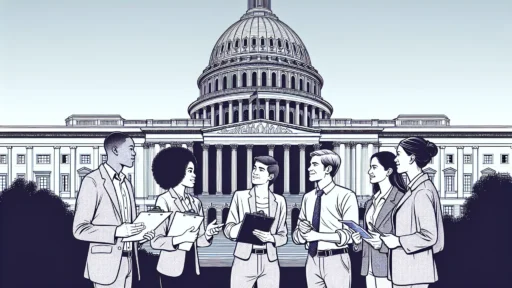In the cosmopolitan city life of New York, common law marriage raises questions and misconceptions in most cases. Long-term couples in a cohabitation arrangement wonder if their union can legally pass for marriage even without a marriage certificate. Having a background in common law marriage in NYC is significant for couples searching for an answer about their rights and responsibilities.
While some cities have laws acknowledging common-law marriage, New York does not. This can cause uncertainty for couples who believe long-term living together affords them equivalent legal status to wedded couples. Examining the ramifications of such a legal divide is important for any individual in a city with such a scenario.
Understanding Common Law Marriage NYC
New York City does not recognize common-law marriage. Many couples believe that living together for an extended period grants them the same rights as married couples, but this assumption is incorrect.
Definition of Common Law Marriage
Common law marriage usually refers to a legally wed marriage, but ceremonies and marriage certificates are simply through living together and agreement between them. In such a case, with no such marriage being lawfully recognized in New York, couples in NYC cannot, under state laws, claim such a state of marriage.
Legal Requirements in NYC
In New York, legal marriage requires a marriage license and an officiant. Couples must meet specific criteria to marry officially. These include:
- Minimum Age: Both individuals must be at least 18 years old. If younger, individuals need parental consent.
- Identification: Valid identification, such as a driver’s license or passport, is necessary for both partners.
- Marriage License: Couples must obtain a marriage license from the City Clerk’s office and wait 24 hours before the ceremony.
- Ceremony: A licensed officiant must conduct a wedding ceremony to legally bind the marriage.
Understanding the legal framework helps couples in NYC clarify their status and consider options for legal protection, such as cohabitation agreements or marriage.
Advantages of Common Law Marriage
Despite New York not recognizing common law marriage, understanding its potential advantages is crucial for couples considering long-term relationships.
Legal Benefits
Couples can gain specific legal privileges through legal marriages in New York, privileges not obtainable through common law marriage. Legal marriages bestow privileges, including spousal maintenance in case of a break-up or a divorce, inheriting, and access to medical care through an accompanying spouse’s group medical care. Medical decision-making for each other in medical crises can even be conducted for married couples. None of these protections extends to couples with a misconceived perception that they have common-law marriage privileges.
Financial Implications
Marriage can have significant financial dividends. One of them is tax savings for couples who can file a joint return and generally pay less in taxes overall. Health care under family medical insurance programs is also accessible through marriage. In most instances, the property is conveyed to a spouse with no probate proceeding, but couples in a domestic arrangement miss out on such financial savings. Therefore, information about legal marriage alternatives in New York City is significant.
Challenges of Common Law Marriage
Common law marriage presents several challenges for couples in New York City due to the state’s lack of recognition for such arrangements. Understanding these challenges is essential for individuals in long-term relationships.
Proving the Marriage
Proving a typical marriage in New York is impossible, as state laws do not provide for such a union. Despite long-term cohabitation and a demonstration of a marriage, such a union cannot claim legal marriage because of its lack of a marriage certificate and ceremony. All such fallacies can generate legal issues in property and spousal maintenance claims.
Impact on Legal Rights
The absence of common marriage laws affects many couples’ privileges. Couples lack privileges enjoyed by wed couples, including inheritance, medical care, and taxes. Lack of wed consideration can become an issue in court, and couples become vulnerable during times of urgency and breakage. For couples planning long-term unions, one can seek marriage forms and cohabitation agreements to secure one’s privileges and interests.
Common Misconceptions About Common Law Marriage
Many people have misconceptions about common-law marriage, especially in New York City. Understanding the facts is crucial for couples in long-term relationships.
Myths vs. Facts
- Myth: Common law marriage exists in New York.
Fact: New York does not recognize common-law marriage. Couples who live together for a significant time are not considered legally married without a marriage license. - Myth: Living together for several years creates a common-law marriage.
Fact: Duration of cohabitation does not establish legal marriage in New York. A formal ceremony and marriage license are necessary for legal recognition. - Myth: Couples in a common law marriage can claim spousal rights.
Fact: Without legal marriage, partners cannot claim spousal rights, such as inheritance or medical decision-making. - Myth: All states recognize common law marriage equally.
Fact: Recognition of common law marriage varies by state. Some states do recognize it, while New York does not.
Clarifying the Law
Clarifying the laws regarding marriage in New York informs couples about their legal position. To become legally married, couples must obtain a marriage license, meet age requirements, produce proper documentation, and have a ceremony conducted by a qualified individual. As common law marriage is not an alternative, most couples have gaps in legality in crises. Marriage in a proper form shields property, support, and medical decision-making rights.
Couples considering long-term living together must seek marriage or cohabitation agreements in court. These court options include important protections not included in common law marriage in New York City.
Discover the Power of BlueNotary:
Integrate your Business, Title Company, or Law Firm to Satisfy your Customers and Decrease Turnaround
Get a document Notarized/Sign-up
Join the Free Notary Training Facebook Group
Conclusion
Understanding that New York City is not a state that recognizes common law marriage is critical for couples in long-term relationships. Without a marriage, couples miss out on significant legal protections and privileges. Cohabitation couples must realize the consequences of their state and explore alternatives such as marriage or cohabitation agreements.
This clarity excludes them from misconceptions and keeps both of them secure in terms of legality. By being proactive, couples can secure their interests and move through relationships confidently in a city where common marriage is not a reality.
Frequently Asked Questions
What is common law marriage in New York City?
Common law marriage is the idea that couples can be considered legally married without a formal ceremony or marriage license based on cohabitation and mutual agreement. However, New York does not recognize common law marriage, meaning couples cannot claim legal marital status.
How does New York define marriage requirements?
To legally marry in New York City, couples must obtain a marriage license, meet age requirements, provide valid identification, and have a licensed officiant perform the ceremony. These steps are essential for gaining legal recognition and rights.
What are the benefits of formal marriage in NYC?
Formal marriage offers numerous legal benefits, including spousal support, inheritance rights, and the ability to make medical decisions for each other. It provides essential protections that couples in non-marital relationships lack.
Can long-term couples claim spousal rights in NYC?
No, long-term cohabiting couples cannot claim spousal rights in New York City since the state does not recognize common law marriage. Legal marriage is necessary for obtaining rights related to property, support, and health decisions.
What should couples consider for legal protection in NYC?
Couples considering a long-term commitment in New York should explore formal marriage or cohabitation agreements. Unlike unrecognized common-law marriage, these options provide essential legal protections and clarify rights.
DISCLAIMER
This information is for general purposes only, not legal advice. Laws governing these matters may change quickly. BlueNotary cannot guarantee that all the information on this site is current or correct. For specific legal questions, consult a local licensed attorney.
Last updated: March 21, 2025













